MARKET OVERVIEW
The Global Spritzer market and industry will be radically changed in the coming time. The Global Spritzer Market, with its drive mainly by an increasing thirst for refreshing low-alcohol drinks, will determine how a consumer is likely to shift towards a healthier and much versatile drink. Spritzers have transformed from a mere wine and soda water composition to one of the most sought beverages across almost all age brackets, an alternative that offers less heavy beverage options than the heavier alcohol like beer and cocktails. Thus, because consumer preferences shift towards a beverage that carries less alcohol content, the global spritzer market will capture this preference by providing more diversified spritzer products as per their taste and choice.
The Global Spritzer market is vast and diverse, with a wide range of products that cater to different tastes and occasions. The market will experience an increase in sparkling wine spritzers, fruit-infused varieties, and even those made with non-alcoholic bases, appealing to both traditional wine drinkers and those looking for innovative, alcohol-free alternatives. This flexibility would enable the market not only to broaden geographically but also attract even more diverse consumers, namely younger generations who are paying more attention to healthier habits and more environmentally friendly water alternatives. With growing interest in natural ingredients and increasing demands on labeling transparency, manufacturers will be compelled to make no-sugar spritzers gluten-free and to use organic or sustainably sourced components.
New trends and innovations will surely find a place in the market due to changing consumer preferences. Beverages will be increasingly exotic with fruits, herbal flavors, and even botanical infusions for differentiation purposes. The rising popularity of spritzers in social settings such as casual get-togethers, outdoor events, and summer parties would make it continue its influence in the market. Brands will increasingly be focused on producing easy-to-consume-on-the-go products that have the sense of sophistication with little effort made, which further solidifies spritzers as a go-to for almost any occasion.
This also means that the Global Spritzer market will be impacted by premium, craft-style drinks that people are becoming increasingly interested in. As people increasingly demand more unique, boutique products, high-end, boutique spritzers will have a niche in the market. This could imply that there will be smaller-scale operators who specialize in locally sourced ingredients used to craft their products. On the other hand, the big companies would use technology to enable mass production and distribution for the big population. The battle for market share would become very fierce, with competition going on to capture cost-sensitive consumers and those who pay for quality.
The future of the Global Spritzer market is, therefore, a mixture of tradition and innovation. Because brands will strive to achieve the different tastes and needs of the global population, the spritzer would always be a versatile, refreshing beverage. The industry's evolution will not only reflect changing consumer habits but also a broader shift towards more mindful, health-conscious drinking experiences. In doing so, the Global Spritzer market will carve out a considerable space for itself within the larger beverage landscape; Spritzer will become a part of bars, restaurants, and homes worldwide.
Global Spritzer market is estimated to reach $3,446.0 Million by 2031; growing at a CAGR of 44.7% from 2024 to 2031.
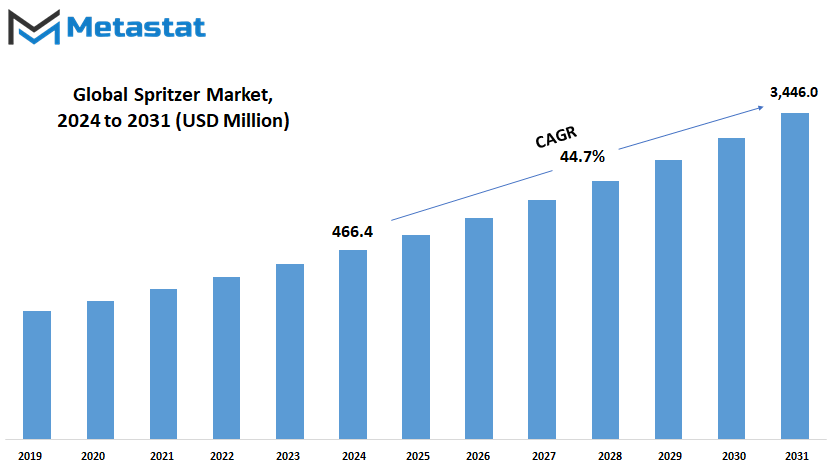
GROWTH FACTORS
Global Spritzer market is witnessing tremendous growth with changing consumer preferences and lifestyle trends. Consumers' tendency towards beverages that align with moderation and social ease has made spritzers popular. Light, low-alcohol drinks are described as refreshing and versatile; therefore, they appeal to an increasing population looking for balance in choices for casual gatherings or relaxed social events. The convenience factor also plays an important role, as the readiness-to-drink RTD spritzers provide a hassle-free experience for consumers demanding easily available and portable alcoholic beverages.
Most fundamentally, the appeal of the spritzers is linked to the fact that these products appeal to healthy-conscious consumers. Most consumers currently want products that feel indulgent yet not excessive. Spritzers, on the other hand, provide a light profile that precisely does this. This increased innovation by the industry has further increased its popularity since manufacturers test new flavors, unique mixes, and sleek packaging to get more people interested rather than settle with hard seltzers or craft cocktails.
Of course, the market comes with challenges. Some regions are imposing stricter alcohol regulations that limit the scope of marketing and distribution, which can hinder the growth prospects of spritzers. Besides, it is a very competitive market with other RTD beverages. Brands in spritzers need to differentiate themselves in such a cluttered market. Even with such constraints, the scope for innovation remains very promising. Companies might be able to reach a larger consumers' base by targeting a diverse flavor profile and by focusing on eco-friendly or stylish packaging that can create followings.
The future for Global Spritzer is bright, especially when looking at the trends of mindful consumption and convenience, which are not slowing down. Being versatile enough to include diverse taste preferences and staying accessible and attractive to the health-conscious demographics will be good. As the market expands, sustainability and transparency along with creativity in products are expected to be well appreciated by spritzer producers, which will help them succeed in the market. The Global Spritzer market is going to adapt and expand itself as consumer interest rises and as developments continue to emerge.
MARKET SEGMENTATION
By Product Type
The Global Spritzer market is growing steadily as consumers are seeking lighter and refreshing beverages. Spritzers, characterized by their sparkling and flavorful features, have found a place in the beverage market. They attract those who look for alternatives to heavier alcoholic beverages or sugary sodas. The spritzers come in both alcoholic and non-alcoholic varieties and are consumed by a large section of people, thus making them popular for various purposes and lifestyles.
Alcoholic spritzers are associated with social events and casual gatherings. Because it is lower in alcohol compared to stronger beverages, it attracts consumers who like the taste of alcoholic drinks but cannot withstand the intensity. This type of product has attracted many young consumers who emphasize moderation and prefer light beverages yet satisfying. Other innovations in flavor and premium ingredients are driving interest in alcohol spritzers, and the increasing direction of brands to keep up with growing consumer demand is also the use of natural and sustainable components.
On the contrary, non-alcoholic spritzers are also picking up in popularity as health consciousness continues shaping purchasing decisions. These spritzers provide a fizzy, flavorful experience without the inclusion of alcohol, making them versatile for people of all ages. The growing trend of mindful drinking has led to the development of non-alcoholic beverages that retain the sophistication and appeal of traditional spritzers. Non-alcoholic spritzers, therefore, are positioned as a trendy and wholesome choice for everyday refreshment or special occasions, with a focus on clean labels and health benefits.
By Flavor Type
The Global Spritzer market has grown much in the recent years and will be expected to evolve with the change in consumer preferences. Most of the growth are mainly due to an increased need for refreshing, low-alcohol drinks that can provide different flavors and classy drinking experience. The spritzers market is also very diversified as it presents a very wide range of spritzers that come in varied flavors, from fruity and herbal to botanical and exotic.
As we continue into the future, this Global Spritzer market will surely grow, with consumers increasing their adventurousness in flavour. One of the largest divisions in this market will be flavor type, a key factor that will help influence consumer decisions. Fruity flavours would continue to dominate, as their offerings are refreshing, sweet and familiar, which more or less people prefer to experience. Citrus flavoured drinks like lemon, lime, and orange come with a great chance among these flavors for the taste preferences of the younger generation and to obtain lighter alternatives to a wide range of traditional liquor-based beverages.
Herbal and Botanical flavors are also gaining space within the market. These flavors include mint, lavender, and chamomile, among others, which provide a more refined drinking experience and are popular among consumers looking for unique and health-conscious options. These flavors will continue to surge in demand as consumers are growing more health-aware and search for natural ingredients in their drinks. There is also a general interest in wellness and sustainability driving a trend toward botanicals, which will likely propel further growth in the future market.
In the near future, unique and exotic flavors will dominate demand. Consumers want new and exciting flavor combinations that stand out from the traditional options. Exotic fruits, herbs, and spices from all over the world will start to make their way into spritzers, targeting adventurous drinkers who want something new. With an increase in global connectivity and international flavors getting more attention, these unusual blends will shape the future of the Global Spritzer market.
Overall, the Global Spritzer market will continue to grow with time as it evolves along with the change in the taste and preferences of consumers. Flavor diversity will attract new consumers to the market and keep the market vibrant. The increasing interest in various experiences related to drinking will no doubt shape the future of this dynamic market.
By Distribution Channel
Increasing number of consumers opting for refreshing and low-alcoholic beverages having unique flavors fuels the global Spritzer market. Its growth in the market has been based on the ever-changing preferences, rising awareness about healthy products, and heightened interest towards ready-to-consume items. The market shall continue evolving to accommodate this trend; thus, providing a vast choice of spritzer in varied flavors and packaged forms. The Global Spritzer market will also change the way these products are distributed, with the need for convenience and accessibility increasing. One of the most important aspects of the Global Spritzer market is the range of distribution channels that vary according to consumer needs.
Supermarkets and Hypermarkets will remain significant outlets for spritzers in the coming years due to their widespread reach and convenience. These retail chains are vital for those consumers who would like to see and choose as much variation as possible while shopping in actual life. However, e-commerce is increasing much higher. The Online Retail Channels offer convenience with competitive price proposals and the plus of doorstep delivery. The more the people turn towards e-commerce for their shopping, the Global Spritzer market would require such websites to receive orders from their customers. Other vital channels are Convenience Stores.
The main distribution channels happen to be convenience stores providing rapid, painless purchasing for people who need something that fast. Most of those convenience stores occur in all neighborhoods and provide product items readily accessible and drawn out of those locations. It then proceeds further into the future; continues expanding on the Global Spritzer market, as more supply leads to additional demand in this constantly growing global marketplace. Specialty Stores, meanwhile will continue to represent market segments to come. Specialist markets which offer unique and superior drinks can expect growth on-going and will continue for at least the foreseeable future. Bars and Restaurants will remain essential distribution points as well.
Social settings such as these will drive sales of spritzers, especially in regions where people enjoy casual drinks with friends. Duty-Free and Travel Retail channels will only gain importance in the future as well. As tourism continues to recover, the retail space will be used for the tourist to buy home products, thus increasing the Global Spritzer market even further. With this bouquet of channels working together, the future of the Global Spritzer market seems to look more diverse and accessible than in the past.
By Packaging
This report tracks the growth and change associated with the global Spritzer industry, as it adjusts consumer preferences and trends. Current demand for refreshing low-calorie beverages is primarily found, but in particular for some spritzers as those products are seen as relatively sophisticated alternatives to soft drinks. With the increased demand for health-conscious products with less sugar and artificial flavorings, the appeal to spritzers has increased with the often used natural ingredients and carbonized water. The market will have continued innovation in product offers, packaging, and sustainability throughout the forecast period.
Packaging will dominate the global Spritzer market going forward. Companies will continue paying attention to offering a huge variety of packaging options to meet the needs of diversified users. The most important one among these will be a bottle. It will mainly come in glass and plastic. Glass bottles are also expected to retain their charm due to the premium feel and the ability to better preserve the taste and carbonation of the beverage over longer periods. Plastic bottles, though, are cheaper and weigh less, which makes it more preferred by brands aiming to reach a larger number of consumers. With this trend of consumer demand for convenience, the usage of cans in the global Spritzer market is also likely to gain traction. Cans can be carried easily and have recyclable materials, so they keep the product safe from light and air. This ensures the quality and keeps the product fresh for a longer period.
Single-serve pouches will also be more in the market. Single-serve pouches are very convenient to carry in small size and handy. Such consumers, who want to drink quickly on the go, are highly targeted by this single-serve pouch. The flexible, lightweight materials from which the single-serve pouch is made help it be economical and handy. In addition, multi-serve containers will also remain in demand, especially for larger gatherings or home use. These containers can provide better value for money as they cater to families or groups who prefer buying beverages in bulk. As the world market for Spritzer is expanding, manufacturers are focusing on the sustainability of their product preferences.
Packaging is going to be more green, with eco-friendly material and recyclable options in place to cater to consumer demand for reduced environmental impact. This will drive the future of the market with a blend of convenience and sustainability, giving brands a competitive edge in this market. Evolution in a global Spritzer market will reflect the change that is brought about by demand made by consumers, indicating the need for innovation in packaging.
|
Forecast Period |
2024-2031 |
|
Market Size in 2024 |
$466.4 million |
|
Market Size by 2031 |
$3,446.0 Million |
|
Growth Rate from 2024 to 2031 |
44.7% |
|
Base Year |
2022 |
|
Regions Covered |
North America, Europe, Asia-Pacific Green, South America, Middle East & Africa |
REGIONAL ANALYSIS
The Spritzer market in the global market is growing steadily, and it is happening almost everywhere in the world. As there is a rising demand for refreshing low-alcohol beverages, regional markets are also growing to cater to the needs of a particular consumer and the trend of a particular region. Each region has its own dynamics that make the global market develop.
One of the largest contributors to the world Spritzer market is North America, which comprises the United States, Canada, and Mexico. The region has had a rising interest in healthy, low-calorie drinks, and that shift in consumer preference has raised the demand for spritzers. As the wellness culture and conscious consumption are increasingly becoming a trend, individuals are opting for spritzers as a refreshing option instead of traditional alcoholic drinks. In the United States, in particular, the change is being led from the front, and with the expansion expected in the coming years with more innovative brands in unique flavors and healthier ingredients, the market will be booming.
In Europe, the spritzer market is well-established; countries such as Germany, Italy, France, and the UK lead the pack. Such countries have been drinking wine and mixed beverages for centuries, hence these are important players in the spritzer market. What's attractive about spritzers in Europe is their flexibility; they can be applied to casual gatherings or to more formal events. Italy, who claims to be the manufacturer of the popular Aperol spritz, saw sales jump dramatically as this movement is being followed by other nations in the region, and it is indeed evident that most people require thirst-quenching, more refreshing beverages that do not contain much alcohol and will be cooling.
The Asia Pacific involves India, China, Japan, South Korea, among other emerging markets for spritzers. As the consumer base in the region becomes increasingly healthy conscious and adventurous for new drinking experiences, demand is growing for spritzers. Countries like Japan and South Korea are synonymous with a vibrant drinking culture, and spritzers are gathering momentum as consumers seek lighter and refreshing beverage options. The region will surely witness an increase in the spritzers at local levels, thereby diversifying it in the global market.
South America, particularly in Brazil and Argentina, would be a fantastic opportunity to grow in the spritzer segment. The region is already becoming more and more interested in healthy and innovative beverages, thereby fitting the global trend of getting out of sugary drinks. As the popularity of spritzers increases in demand, brands will probably respond by developing the specific product that a local consumer will embrace to expand diversity in the product ranges and support the growth in the market in the succeeding years due to changing demand from consumers.
Countries such as the GCC nations, Egypt, and South Africa, included within the Middle East and Africa, provide room for growth. Although the market is very nascent, demand for healthier and more diverse drinks points to the fact that spritzer markets will expand over time. With the direction of consumer preferences changing within these regions, spritzers will increasingly find places in the beverage landscape.
In conclusion, the global spritzer market will expand further on the basis of regional demand and changing consumer preferences. Because people around the world will look for healthier and more refreshing alternatives to traditional drinks, the demand for spritzers will continue to increase, opening up opportunities in both established and emerging markets. In the future, there will be more innovation as well as a wide range of diversified products catering to tastes and preferences in every region in the world with regard to the global market for Spritzer.
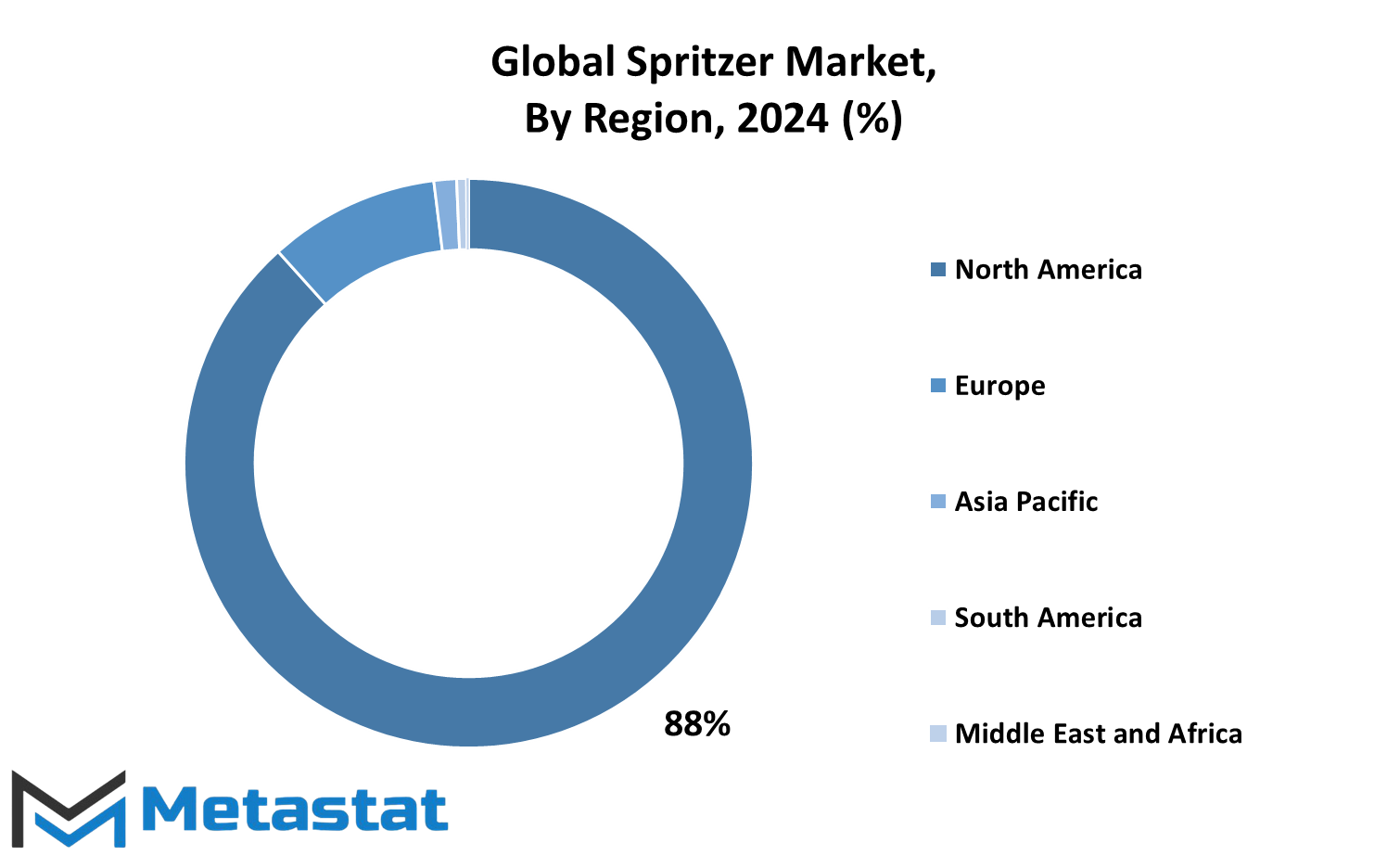
COMPETITIVE PLAYERS
The historical development of the global spritzer market has been relatively high, mostly driven by the rising need of refreshing light beverages on the consumer side. Lately, the health conscious population who are looking for alternatives to traditional alcoholic drinks and have a higher interest in low-calorie drinks has emerged. As consumer interest is growing in newer options in the beverage arena, the spritzer business houses continue to innovate for leading competition. This has resulted in the fact that the major players continued investing in research, development, and marketing strategies for ensuring that their products fulfill consumer demand.
The spritzer market is expected to be even more dynamic with shifting consumer preferences toward sustainability and variety in beverages in the coming years. Technology and data analytics are believed to be utilized by a lot of companies to comprehend changes in consumer behavior better and formulate products that go along with the preferences of consumers. With environmental concerns on the rise, sustainability will be a major focus for producers, and eco-friendly packaging and sourcing practices will become important in the market. In addition, the spritzer category is likely to grow to include more flavors, alcohol varieties, and healthy options such as functional beverages or organic ones.
Asahi Beverages (NZ) Limited, Hoxie Spritzer, and Archer McRae Beverages Ltd. (Joiy), among other top players in the global spritzer market, have already positioned themselves as market leaders by producing unique and high-quality products. Since such companies can innovate and are adapting to consumer trends, the companies are well-poised to capture a larger market share in the coming years. Brands like E. & J. Gallo Winery, Field Recordings, and The Uncommon have received attention with premium offerings that cater to discerning consumers who would pay a little more for a better product.
Other than this, the global majors will continue to dominate the spritzer market. Companies like Anheuser-Busch InBev, The Coca-Cola Company, and Diageo plc would continue to dominate the spritzer market. They are well distributed, with big marketing muscles, carrying a big brand name, which gives them a wider base of consumers. They will be aggressively looking at strategic partnerships, acquisitions, and new products to ensure their positions are not diluted with an increase in market size.
In addition to these well-established brands, newer brands including White Claw Hard Seltzer and Truly Hard Seltzer will maintain strong market share. The former will be able to thrive on their ability to supply a variety of products which appeal to the young and health-conscious who prioritize flavour and low-calorie content. Going forward, competition in the global market for spritzer is fierce and only companies that will succeed are those which will harmonize innovation with sustainability, responding to evolving demands.
Spritzer Market Key Segments:
By Product Type
- Alcoholic Spritzers
- Non-Alcoholic Spritzers
By Flavor Type
- Fruity Flavors
- Herbal and Botanical Flavors
- Unique and Exotic Flavors
By Distribution Channel
- Supermarkets and Hypermarkets
- Convenience Stores
- Online Retail Channels
- Specialty Stores
- Bars and Restaurants
- Duty-Free and Travel Retail
By Packaging
- Bottles (Glass, Plastic)
- Cans
- Single-Serve Pouches
- Multi-Serve Containers
Key Global Spritzer Industry Players
- Asahi Beverages (NZ) Limited
- Hoxie Spritzer
- Archer McRae Beverages Ltd. (Joiy)
- E. & J. Gallo Winery
- Field Recordings
- The Uncommon
- Anheuser-Busch InBev
- The Coca-Cola Company
- Diageo plc
- Heineken N.V.
- Molson Coors Beverage Company
- White Claw Hard Seltzer
- Truly Hard Seltzer
WHAT REPORT PROVIDES
- Full in-depth analysis of the parent Industry
- Important changes in market and its dynamics
- Segmentation details of the market
- Former, on-going, and projected market analysis in terms of volume and value
- Assessment of niche industry developments
- Market share analysis
- Key strategies of major players
- Emerging segments and regional growth potential



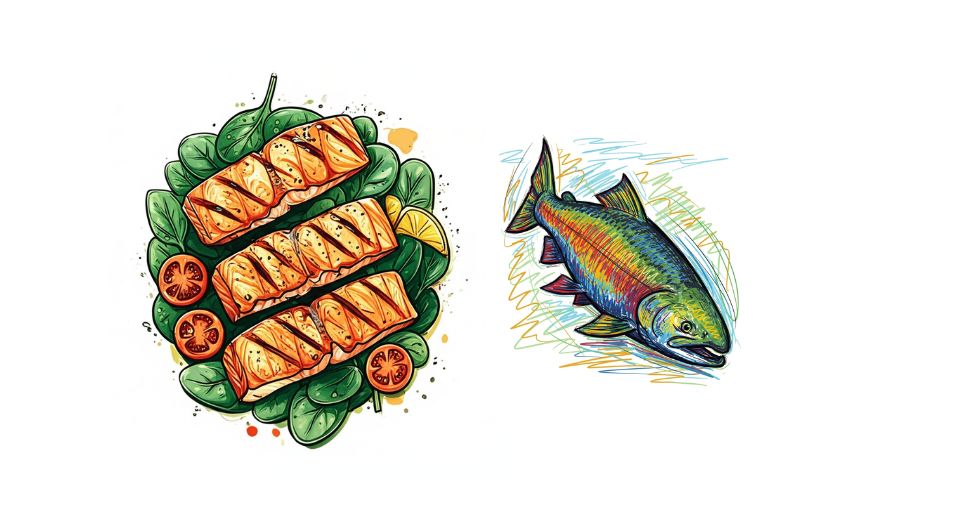
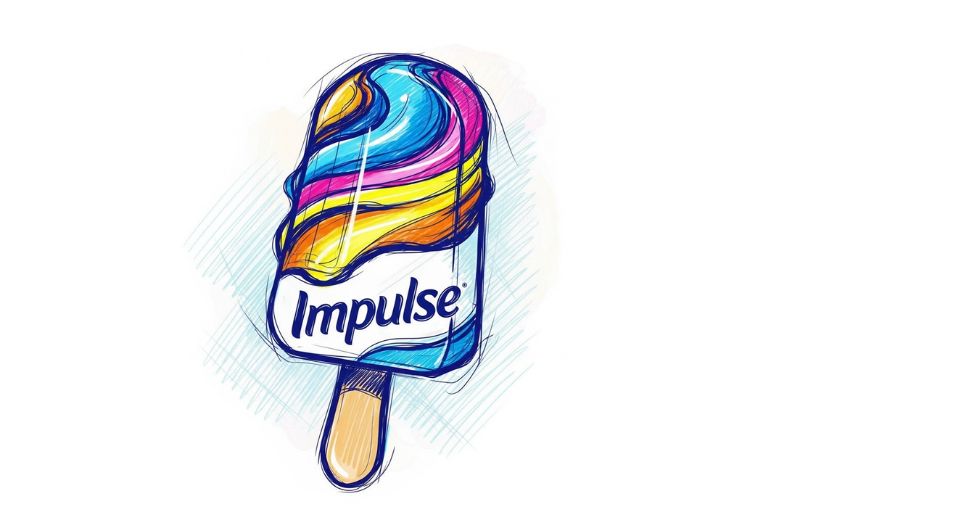
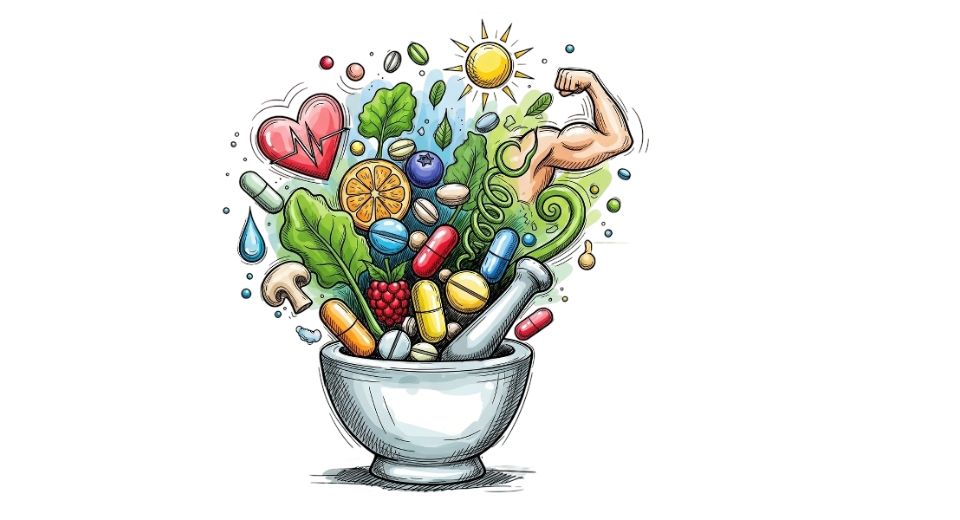
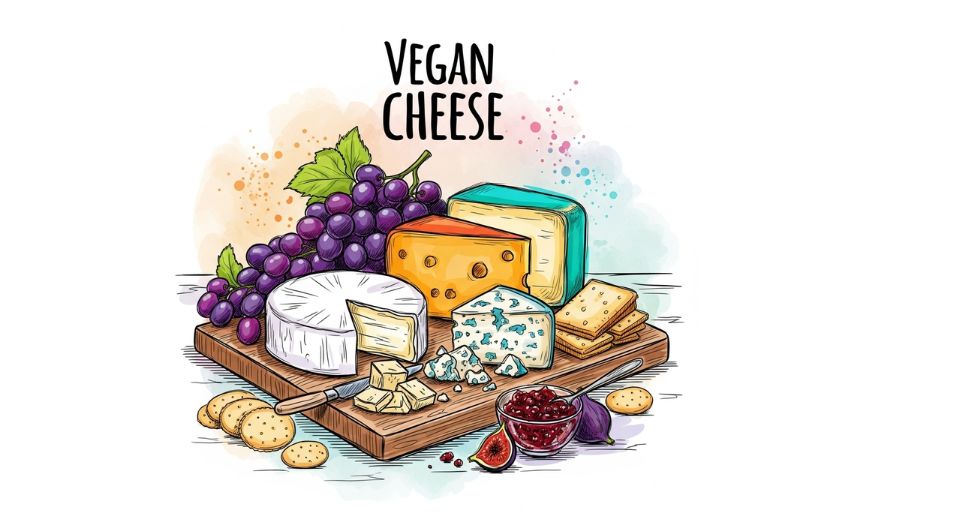

 US: +1 3023308252
US: +1 3023308252






